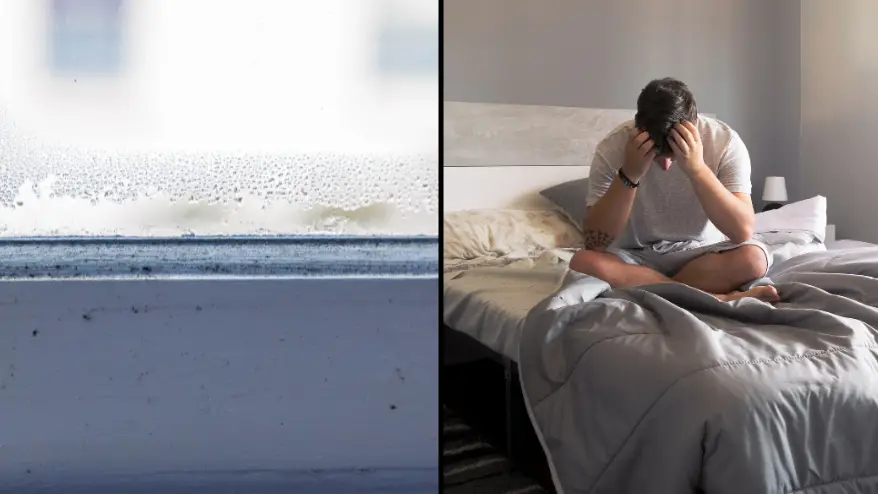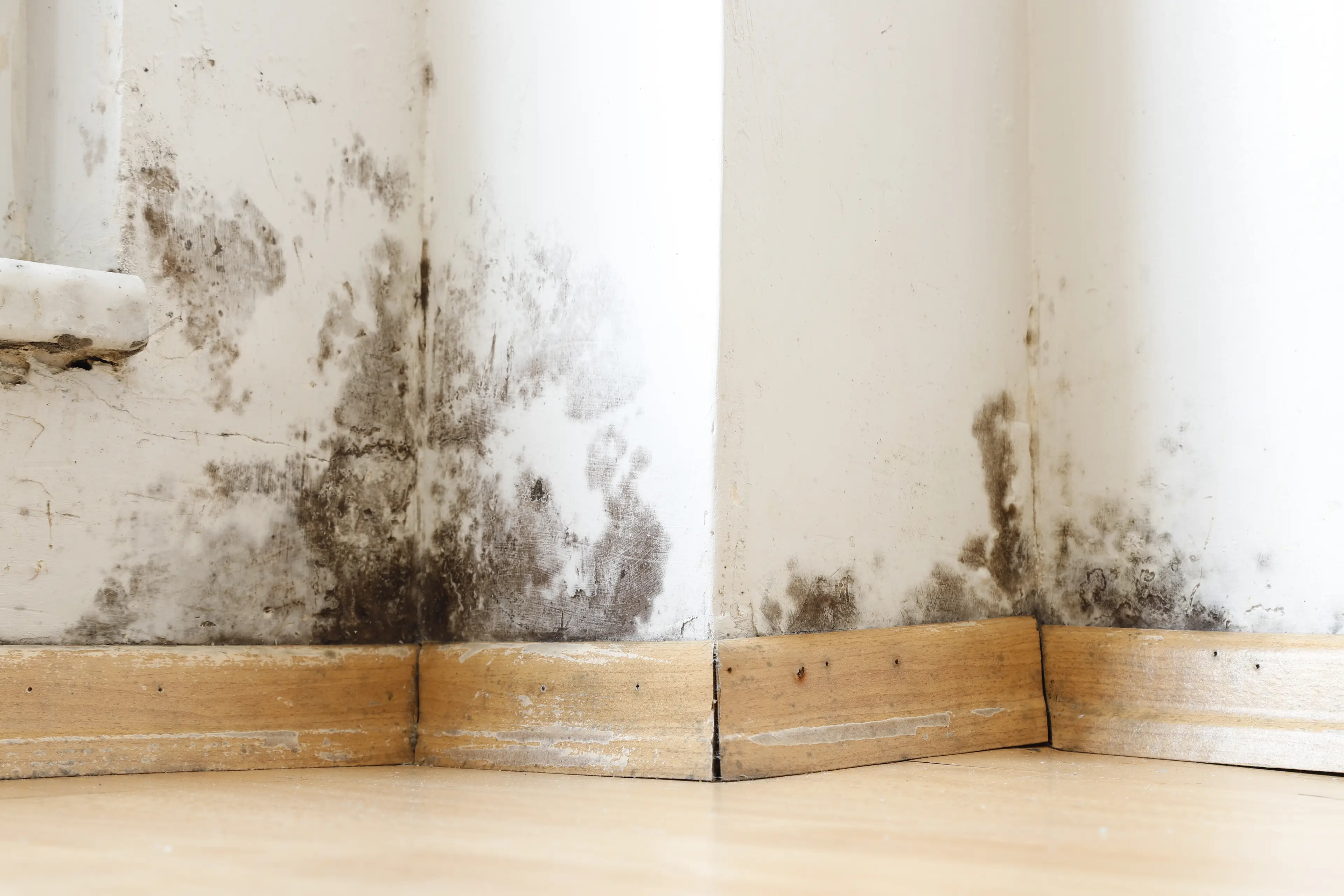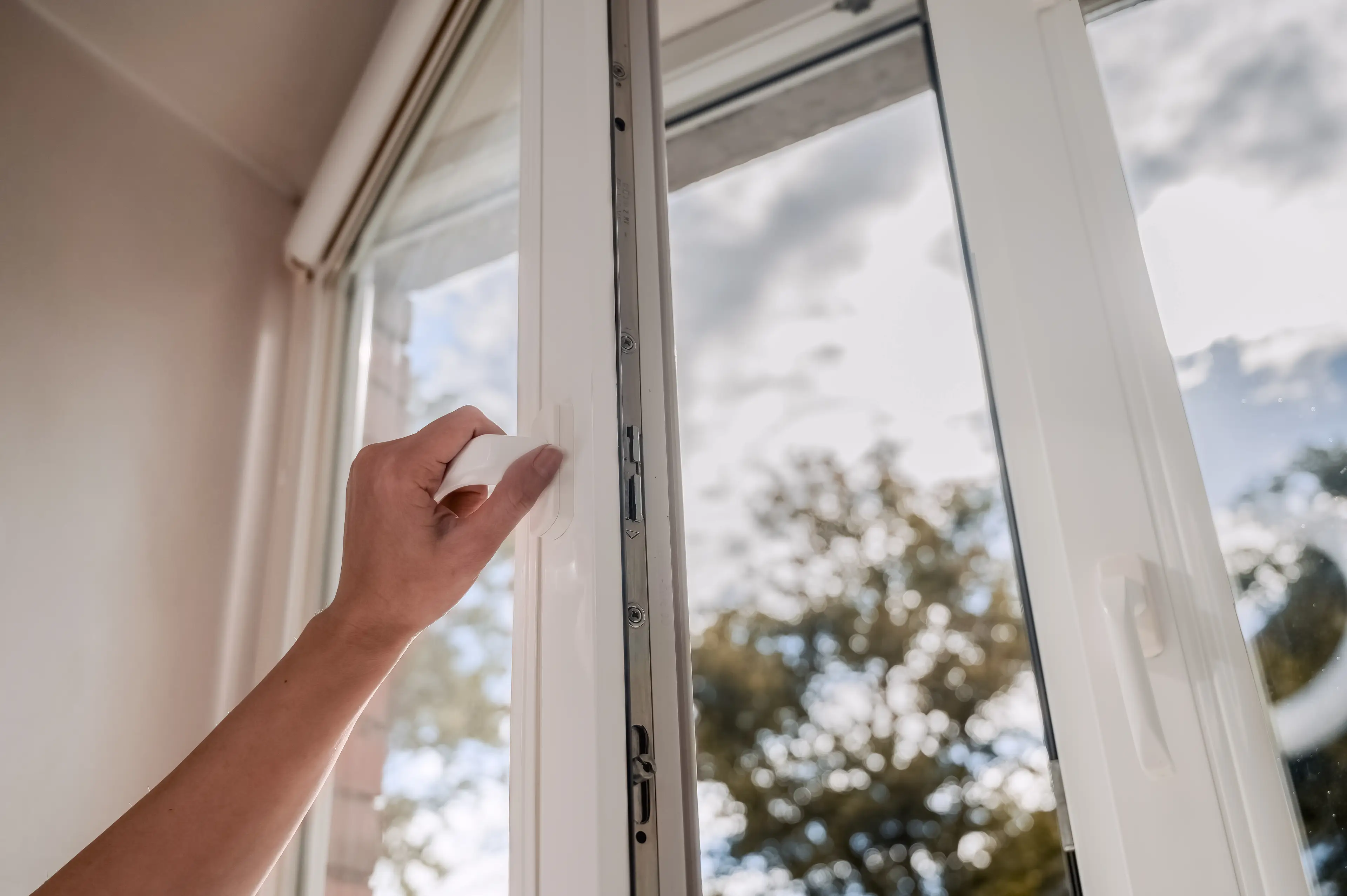
You can lock your doors and bolt down your windows, but this 'silent killer' will still find a way to sneak into your home.
Brits might not even notice it has invaded their property, so they'll be in for quite a shock when it starts to take a toll on their health and wellbeing.
Thank God for experts who can give us some advice on how to stop this unwelcome visitor before it's too late.
Advert
As you may have noticed, the temperature has plummeted recently and a lot of us are waking up to a cloudy mist covering our windows and pesky spores of mould are turning up all over the gaff.
Winter only exacerbates this problem because we're whacking the heating right up constantly, so when the moist, warm air meets a cold surface it causes condensation which can lead to damp.
Then we end up stuck in a vicious circle - the sitting water can encourage mould to sprout across your surfaces, in the corners of rooms and other poorly ventilated areas.
If mould is left untreated, it can continue to grow and eventually lead to respiratory illnesses, allergies, asthma and red eyes. In some more serious cases, mould in homes can lead to fatalities.
That's why it's been dubbed the 'silent killer', because slowly but surely, it can wreak havoc on your health without you even realising until it's too late.

The microscopic fungus grows in damp places, releasing dangerous spores into the atmosphere.
You can still identify mould in your home though, as it has a few noticeable characteristics; it is often fuzzy with black, white or green patches and comes with a musty smell.
Those with compromised immune systems, such as babies and the elderly, are more at risk of these symptoms.
The most common cause of mould in UK homes is condensation; often found in spaces of the home where there's high moisture levels like bathrooms, kitchens and on and around windows.
But don't fear, as domestic cleaning expert Petya Holevich is here to help guide Brits on how to keep mould at bay.
Speaking to The Sun, the supervisor at Fantastic Services explained: "Always open your windows during the warmest part of the day. This is the ideal time to open your windows to ventilate your home and get rid of condensation because the air outside is usually at its driest.
She continued: "This is typically in the late morning or early afternoon when temperatures rise and the humidity outdoors is relatively low.

"Aiming to ventilate your home during this time will allow fresh air to circulate through the house, which will assist in moisture removal without the need for additional heating."
Petya admitted it is hard to reduce condensation while trying to keep your energy bills down - so suggested that people should not open their windows during the coldest parts of the day or night, as this will increase the cost to heat your pad.
She added: "An extra tip I'd recommend is to consider the wind direction when opening your windows.It's best to always open them on the side of the house facing the wind as this can facilitate better airflow.
"You don't have to keep your windows open for long either. Between five and 15 minutes is sufficient."
If you're already stuck with the stuff and pulled the couch out to find that loads of mould spores have multiplied, grab some bleach, a stiff brush, a bucket of water and a couple of cloths.
Mix one part of bleach with four parts of water, get scrubbing within an inch of your life before rinsing the solution off and Bob's your uncle.
It might be a 'silent killer', but you can still stop mould in its tracks.